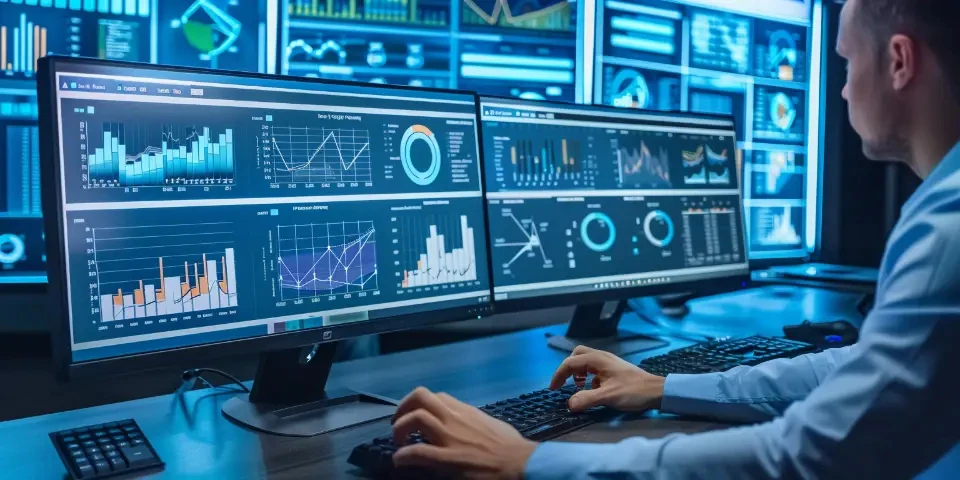The AI Composer Creating Personalized Soundtracks for Every Mood
In the ever-evolving realm of artificial intelligence (AI), one of the most fascinating applications is the creation of personalized soundtracks. Imagine having an AI composer that can generate music tailored to your mood, seamlessly blending various genres and instruments to create a truly unique auditory experience. In this article, we will explore the capabilities of AI composers, their potential impact on the music industry, and the challenges they face. So let's delve into the world of AI and music!
1. The Rise of AI Composers
AI composers have gained significant attention in recent years due to advancements in machine learning and deep neural networks. These sophisticated algorithms can analyze vast amounts of music data, identify patterns, and generate original compositions. Utilizing these technologies, AI composers can mimic the style of famous musicians or explore entirely novel musical landscapes.

These AI-powered composers have the potential to revolutionize the creation of soundtracks for various media, including films, video games, and advertisements. By generating personalized music for each scene or emotion, they enhance storytelling, evoke specific feelings, and immerse the audience in a more engaging auditory experience.
2. Key Features of AI Composers
AI composers offer a variety of features that make them truly exceptional tools for creating personalized soundtracks. Some key features include:
- Emotion Recognition: AI composers can analyze emotional cues and create music that matches the desired mood, be it melancholic, uplifting, or suspenseful.
- Genre Blending: These composers can seamlessly blend different musical genres to create unique compositions that transcend traditional boundaries.
- Instrumentation Variation: By incorporating various instruments and sounds, AI composers can diversify the overall texture and atmosphere of the composition.
- Adaptability: AI composers can adapt their creations in real-time, synchronizing with changes in the media or user preferences to ensure a seamless auditory experience.
- Collaboration Potential: AI composers can work alongside human composers, assisting them in the creative process and expanding their musical capabilities.
3. Implications for the Music Industry
The emergence of AI composers has sparked both excitement and concern within the music industry. On one hand, these AI-powered tools offer unprecedented convenience, efficiency, and inspiration for composers and music producers. They can quickly generate high-quality content and serve as valuable aids in the composition process.
However, there are concerns about AI replacing human creativity and the potential devaluation of human composers and musicians. While AI composers excel at mimicking existing styles, they may struggle to capture the unique essence of human emotion and expression that inherently resides in music. There's a delicate balance to be struck between AI assistance and human creativity in the industry.
4. Challenges Faced by AI Composers
While AI composers are undeniably impressive, they face several challenges that need to be addressed for further progress. Some of these challenges include:
- Lack of Originality: AI composers may produce music that lacks originality or artistic vision, relying heavily on existing patterns and structures.
- Legal and Ethical Issues: The ownership and copyright implications of AI-generated compositions need to be carefully addressed to ensure fair recognition and compensation for human artists.
- Human-AI Interaction: Streamlining the collaboration and communication process between human composers and AI composers is crucial to harness the full potential of both entities.
- Training Data Limitations: The quality and diversity of training data significantly influence the capabilities of AI composers, and improving the datasets will result in more impressive and versatile compositions.
5. Frequently Asked Questions about AI Composers
Q: Can AI composers replace human composers entirely?
A: While AI composers have tremendous potential, they are more likely to complement human composers rather than replace them. Human creativity and emotional connection with music are essential elements that AI cannot fully replicate.
Q: Are AI composers capable of composing in any musical style?
A: AI composers can mimic and compose in various musical styles based on the training data they have been exposed to. However, pushing the boundaries of AI to create entirely new musical styles is an ongoing challenge.
Q: Can AI composers compose lyrics along with music?
A: AI composers primarily focus on generating melodies, harmonies, and instrumental compositions. Composing lyrics that capture nuances of meaning and emotion remains a complex task for artificial intelligence.
Q: Are there any notable AI composers available for public use?
A: Yes, there are several AI composers available for public use, such as Amper Music, Jukedeck, and AIVA. These platforms offer users the ability to generate personalized soundtracks using AI algorithms, catering to a wide range of applications.
Q: Will AI composers stifle creativity in the music industry?
A: While there are concerns about AI composers impacting creativity, they also offer new avenues for artistic exploration. AI composers can assist musicians, inspire new compositions, and even challenge human composers to push their creative boundaries.
Conclusion
AI composers hold tremendous promise for transforming the music industry by providing personalized soundtracks for every mood. Their ability to analyze emotions, blend genres, and adapt in real-time opens up new possibilities for creating immersive auditory experiences. However, striking a balance between AI assistance and human creativity remains a crucial challenge. As AI continues to evolve, we can expect an exciting future where human and artificial creativity harmoniously blend together, enriching the world of music for both creators and listeners.
References:
[1] A. Brynjolfsson, E. McAfee. "The Second Machine Age: Work, Progress, and Prosperity in a Time of Brilliant Technologies." W. W. Norton & Company, 2015.
[2] D. Cope, et al. "Virtual Music: Computer Synthesis of Musical Style." MIT Press, 2001.
